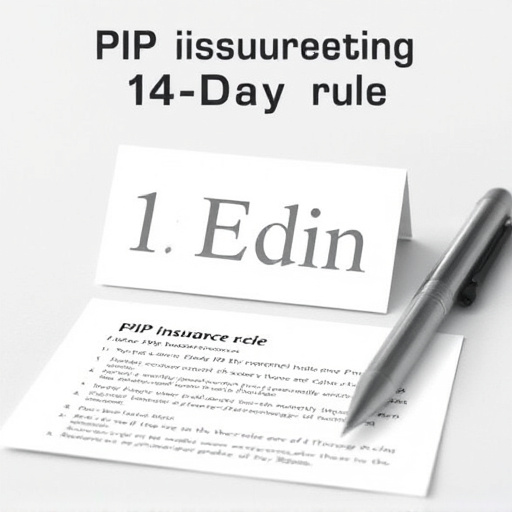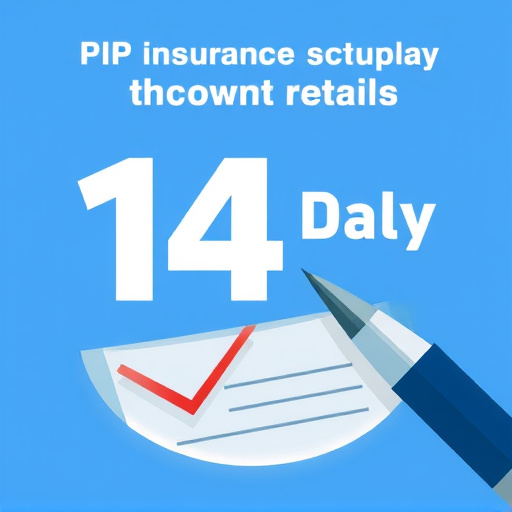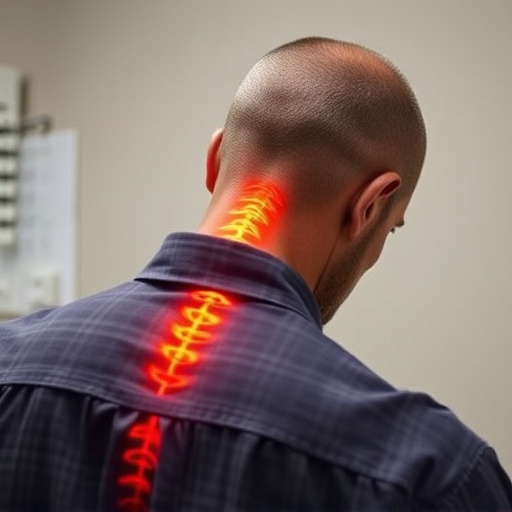After a car accident, Personal Injury Protection (PIP) insurance offers crucial support with its 14-day rule, allowing policyholders to review and adjust benefits without affecting claim validity. This brief period ensures injured parties receive adequate medical coverage and peace of mind for immediate and long-term needs. Understanding this critical timeline is key; adhering to the 14-day rule ensures timely medical treatment, documentation, and access to necessary care via PIP insurance. Prompt initiation facilitates thorough initial assessments and successful claims, while choosing specialized healthcare providers ensures efficient documentation and reporting to expedite claim processing. Meticulous record-keeping and knowledge of the 14-day rule are essential for navigating post-collision claims smoothly.
After a car crash, comprehensive treatment is essential for physical recovery. This guide navigates your post-collision safety net, focusing on PIP (Personal Injury Protection) insurance—a crucial component of financial protection. Understanding the 14-day rule for filing claims is key to ensuring timely benefits. We explore everything from immediate care and long-term recovery to choosing healthcare providers, documenting injuries, and navigating the claims process smoothly. By mastering these aspects, you can effectively manage your post-collision journey.
- Understanding PIP Insurance: Your Post-Collision Safety Net
- The 14-Day Rule: A Critical Timeline for Claim Filing
- Comprehensive Treatment: From Immediate Care to Long-Term Recovery
- Choosing the Right Healthcare Providers for Your PIP Claims
- Documenting Injuries and Expenses: Keeping Detailed Records
- Navigating the Claims Process: Tips for a Seamless Experience
Understanding PIP Insurance: Your Post-Collision Safety Net

After a car accident, having the right coverage can make all the difference in your recovery process and financial stability. This is where PIP (Personal Injury Protection) insurance steps in as a crucial safety net. PIP is a type of auto insurance that provides benefits to injured parties regardless of fault. It covers various expenses such as medical bills, lost wages, and even certain types of disability or disfigurement. Understanding your PIP coverage is essential, especially because it offers a 14-day rule—a window within which you can review and adjust your benefits without affecting your claim’s validity.
This brief period allows policyholders to ensure they receive the adequate support for their recovery. By familiarizing yourself with the specifics of your PIP insurance, you can navigate the aftermath of an accident with greater peace of mind, knowing that there is a dedicated mechanism in place to aid your immediate and long-term needs.
The 14-Day Rule: A Critical Timeline for Claim Filing

In the aftermath of an automotive collision, understanding critical timelines is essential for anyone involved. One such crucial period is the 14-day rule associated with PIP (Personal Injury Protection) insurance claims. This time frame starts from the day of the accident and marks a decisive window for filing a claim. The reason this deadline is so important is that it ensures timely medical treatment and documentation, which are vital in personal injury cases.
Adhering to the 14-day rule isn’t just about meeting a legal requirement; it’s also about facilitating a comprehensive recovery process. It allows insured individuals to seek necessary medical care without immediate financial burden, as PIP insurance steps in to cover these expenses. Promptly initiating this process not only ensures better access to healthcare but also provides adequate time for initial assessments, diagnoses, and treatment plans, all of which are essential for a successful claim.
Comprehensive Treatment: From Immediate Care to Long-Term Recovery

After an automotive collision, comprehensive treatment involves a multi-faceted approach to address immediate and long-term needs of victims. Immediate care focuses on stabilising patients, assessing injuries, and providing first aid. This critical phase often takes place at the scene or in an emergency room, where medical professionals prioritise life-saving measures and pain management.
Long-term recovery, facilitated by PIP insurance (Personal Injury Protection) under the 14-day rule, involves ongoing rehabilitation and support. Depending on the severity of injuries, patients may require physical therapy, counselling, or even surgical interventions. The 14-day rule ensures that individuals have access to necessary medical services within a specified timeframe, promoting efficient recovery processes and helping them navigate the complexities of post-collision care with minimal delay.
Choosing the Right Healthcare Providers for Your PIP Claims

When it comes to choosing healthcare providers for personal injury protection (PIP) claims following an automotive collision, it’s crucial to select professionals who understand the intricacies of PIP insurance and adhere to the 14-day rule. This rule dictates that healthcare providers must file reports within 14 days of treating a patient to ensure smooth and timely reimbursement from PIP insurance.
Look for medical facilities or practitioners who specialize in auto accident injuries and have experience navigating PIP claims. They should be adept at documenting treatments, providing clear diagnoses, and adhering to the necessary reporting timelines. Ensuring these aspects can help expedite your claim processing and prevent potential delays or complications in receiving the compensation you’re entitled to for medical expenses related to the collision.
Documenting Injuries and Expenses: Keeping Detailed Records

After an automotive collision, documenting injuries and expenses is a crucial step in the comprehensive treatment process. It’s essential to keep detailed records of all medical treatments, prescriptions, appointments, and related costs. This includes not just immediate physical injuries but also any ongoing care or rehabilitation required as a result of the accident.
In many jurisdictions, the PIP (Personal Injury Protection) insurance 14-day rule emphasizes the importance of prompt documentation. It requires policyholders to notify their insurance providers about potential claims within a specified time frame. Maintaining meticulous records not only facilitates smoother claim processing but also serves as concrete evidence should any disputes arise in the future.
Navigating the Claims Process: Tips for a Seamless Experience

Navigating the claims process after an automotive collision can be stressful, but understanding a few key tips can help streamline the experience. One important aspect is to immediately notify your insurance company about the incident, providing detailed information about the circumstances and any injuries sustained. Keeping records of all conversations, medical bills, and repairs is crucial for supporting your claim.
Additionally, be aware of your state’s Personal Injury Protection (PIP) insurance 14-day rule, which requires you to notify your insurer within a specific timeframe. Prompt action ensures that you don’t miss out on potential benefits and compensation. Keep track of deadlines, gather necessary documentation, and remain responsive to your insurance company’s requests for a seamless claims process.














